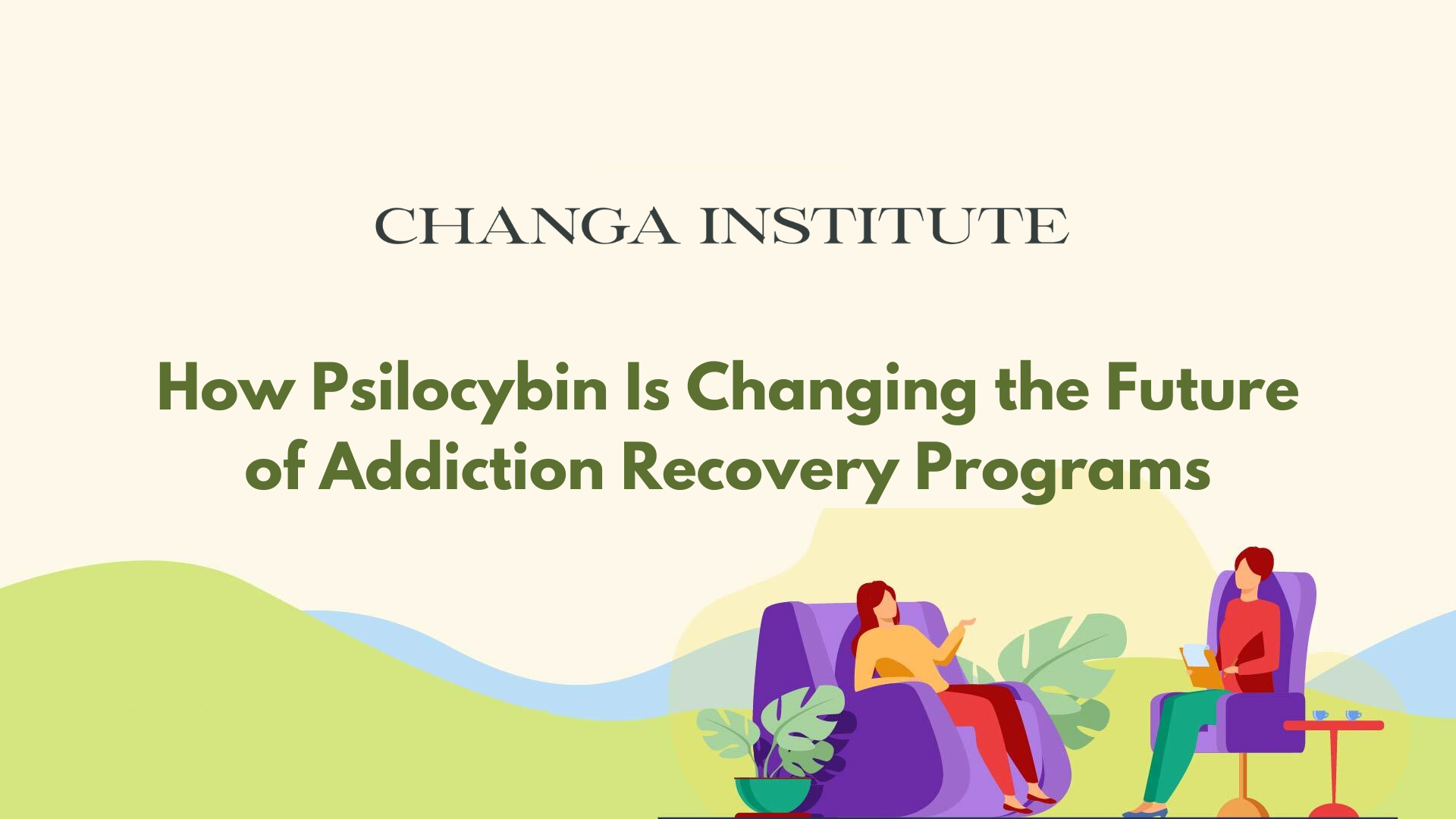How Psilocybin Is Changing the Future of Addiction Recovery Programs
The last decade is dedicated to the medical scientific societies for admiring psychedelic therapy for addiction and other mental treatments. Through different platforms, awareness campaigns, and groups, the fight against addiction has been fought for decades. These campaigns are quite successful but professionals are finding solutions for problematic relapse of addiction in young adults. Psychedelic therapy, especially psilocybin, a substance extracted from magic mushrooms, is one of the potential therapeutic approaches to treat addiction. We will explore the potential of psychedelic treatment for alcoholism, addiction and psilocybin recovery programs in this article.
Addiction and its Prevalence
Addiction is one of the chronic illnesses, relapsing throughout the Earth. This relapse is causing more than $442 loss for the economy as per the recent findings. Unfortunately very few options are available to fight against addiction and its recurrence. The recent findings shows that around 164 million people are addicted globally. Survey conducted by WHO declared that the prevalence of addiction is spreading in all continents.
Psychedelic Therapy for Addiction
Addiction is one of the oldest problems and is still prevalent throughout the world. The conventional methods to treat addiction rely on reducing the availability of harmful substances to manage symptoms and controlling addictive behaviors. However, it was somewhat effective but failed to provide long-term effects and did not address the fundamental problems that underlie addictive behaviors.
In this regard, psychedelic therapy for addiction is now a remarkable solution. Especially psilocybin recovery programs are getting more hits to treat addiction and promote potentially revolutionary solutions.
Psilocybin and addiction
Psilocybin recovery programs are far more effective than other treatment plans by providing more than just reducing addictive symptoms. Developing consciousness to deal with past traumas associated with addiction, psilocybin is successful in diminishing harmful thoughts, and vulnerable emotions.
Mechanism of action
Psychedelic therapy for addiction supports neuroplasticity through serotonin receptors. This flexibility in the brain leads to the developing of new neural connections and an escape from inflexible mental processes. The secret of psilocybin success is neuroplasticity, as addiction is embedded into the brain’s structure and can’t be treated by only symptomatic reduction. Thanks to psilocybin recovery programs, people can now completely get rid of their addiction. Psilocybin therapy provides a new view to see the world for addictive people and make them self-aware.
Psychedelics Treatment for Alcoholism
Alcoholism is one the prevailing addiction spreaded throughout the world. Alcoholism is typified by physical dependence and harmful behavioural patterns. As compared to traditional alcoholic therapies, psychedelic therapy for addiction shows positive outcomes to reduce the urge to drink more. Psychedelic treatment for alcoholism has been shown to decrease the craving of alcohol and supports long duration abstinence. Beyond reducing the craving, psilocybin leads to a sense of wellness and reduces the addictive relapsing of alcoholism after multiple sessions. This prompts the feeling of self-worth, connectivity with other healthy activities and people, and sentiments of acceptance. Moreover, patients report long-lasting shifts to ongoing sobriety after psychedelic treatment for alcoholism even after the treatment phase has ended.
Psilocybin Recovery Programs
Psychedelic therapy for addiction especially, psilocybin is an emerging approach for addiction recovery. Several organizations and professionals are incorporating this remarkable treatment protocol in their recovery clinical settings. Psilocybin recovery programs are different from conventional methods to treat addiction. It emphasizes strategies that deal with the root cause of the addiction. Important elements of psilocybin recovery programs are as below;
Comprehensive Screening and Evaluation: To ascertain suitability and detect any possible contraindications, comprehensive evaluations are carried out prior to starting therapy. Psychological tests, medical history reviews, and a thorough investigation of past substance use are frequently included in this assessment.
Pre-Session Integration and Preparation: participants discuss their goals through one-to-one interaction and guidance of expert therapists. They discuss their expectations for psilocybin therapy and acquire knowledge about mindfulness and harm-reduction tactics. For a successful psilocybin recovery treatment, a trustworthy therapeutic alliance is arranged to receive the best results.
Guided Psilocybin Sessions: Trained therapists and medical experts ensure that the psilocybin is safe, secure and as per the comfort for the patient. Comfortable surroundings, aromatherapy, and music therapy are frequently utilized to create an environment that encourages deep introspection.
Continued Aftercare and Support: Sustaining long-term sobriety requires post-treatment support. To make sure people keep moving forward in their recovery, rehabilitation programs frequently incorporate peer support networks, alumni groups, and continuing therapy.
Stressing Trauma and Related Problems: Programs for psilocybin recovery recognize the part trauma plays in addiction and frequently modify care to address past events that have fuelled substance misuse. The programs seek to promote long-lasting healing and rehabilitation by addressing these underlying problems.
We may anticipate that more psilocybin recovery programs will appear globally as the body of research proving its efficacy in treating addiction keeps expanding. These programs must, however, be grounded in sound research, adhere to the highest standards of ethics, and be carried out with the greatest care and skill.
Concluding Effectiveness of Psychedelic Therapy for Addiction
Psilocybin therapy represents a significant shift from conventional theories of addiction recovery. It provides a therapeutic path that may be significantly more efficient and long-lasting than existing methods by examining the psychological and emotional underpinnings of addiction. It's not a panacea. It is a therapeutic tool that has the ability to assist countless people in escaping the bonds of addiction and taking back their lives when used sensibly and morally inside an organized program. Realizing psilocybin's full potential to transform addiction treatment will require ongoing study, careful application, and a commitment to patient safety.

